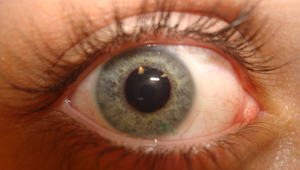 Image via Wikipedia
Image via WikipediaSex and exercise can trigger heart attacks in older people who don't get much of either..
SEX and exercise can trigger heart attacks in older people who don't get much of either, a new analysis finds.
The risk is low, but it's a good reminder that slackers should change their exercise habits gradually, especially in middle age.
People who exercise regularly have a much smaller risk of having a heart attack immediately after sexual or physical activity, said lead author Dr Issa Dahabreh of Tufts Medical Centre in Boston.
"It would be really bad if someone thought our paper means people should not exercise," Dr Dahabreh said. "If anything, it's the opposite."
The analysis, appearing in today's Journal of the American Medical Association, combined results from 14 studies involving more than 6000 patients.
The studies involved only people who'd had heart attacks or had died suddenly from a heart problem. The studies looked at what the people were doing during the hour or two before their heart attacks and compared that to the same people's activity on normal days with no major heart problems.
That study design is used to try to answer the question, "Why did the heart attack occur now?"
Physical activity and sex increased the risk of heart attack by a factor of about three, according to the analysis of the pooled results. Exercise increased the risk of sudden cardiac death by nearly five times. The researchers didn't find a triggering relationship between sex and sudden cardiac death, that is, a sudden death from a heart problem.
The risk for any one person is extremely low.
"If you were to follow 10,000 people for a year and if they all decided to increase their physical activity by an hour a week, you could expect to see two to three more heart attacks," Dr Dahabreh said.
That risk is offset for most people by the benefits of exercise. The more frequently people exercise, in general, the less risk they have of exercise or sex triggering a heart attack.
Most of the patients in the studies were in their late 50s and early 60s, but the findings are a cautionary tale for people in any age group who are slowing down.
Exercise might even be considered cross-training for sex, said Mercedes Carnethon, a heart disease researcher at Northwestern University's Feinberg School of Medicine, who wasn't involved in the research.
"Engaging in regular physical activity is a requirement for maintaining a long, safe, healthy sex life," Dr Carnethon said.
"If this isn't more motivation for people to maintain some degree of physical activity, I'm not sure what is," Carnethon said. "Get out and walk. Do something.
Read more: http://www.news.com.au/breaking-news/sex-a-heart-attack-risk-for-couch-potatoes/story-e6frfku0-1226026513156#ixzz1HHZIYM2D
http://anzacbloggersunite.blog.co.uk


